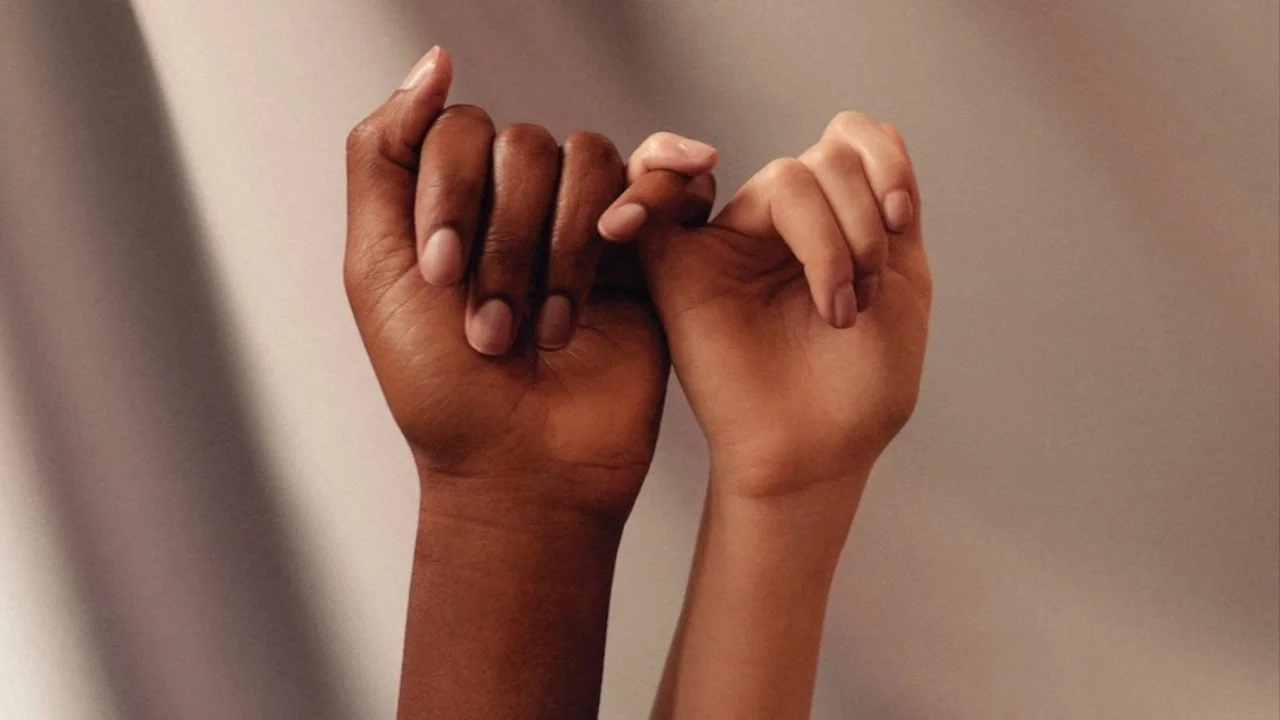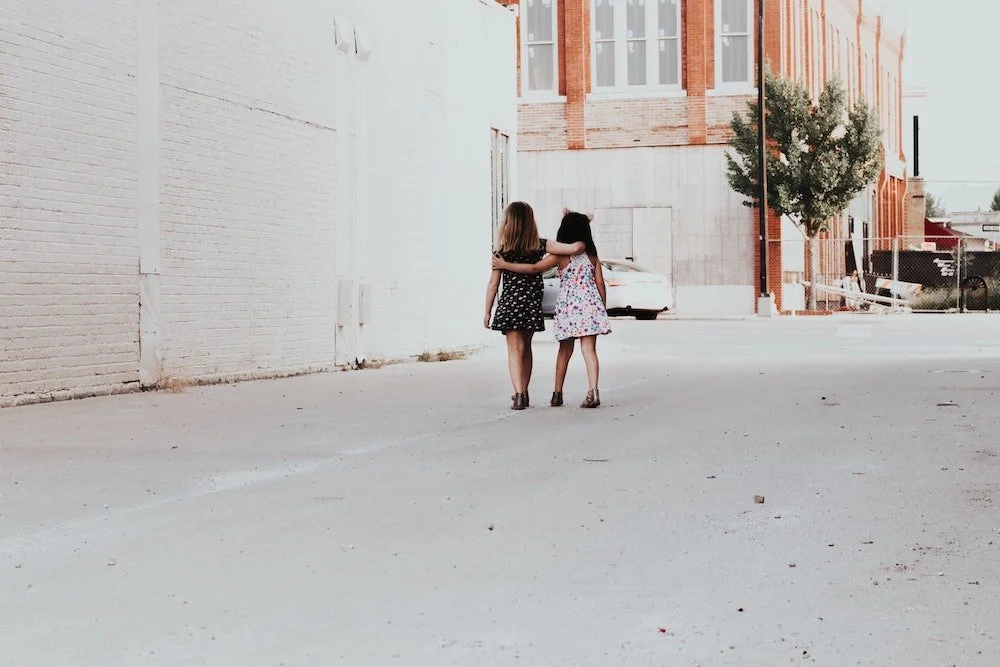Am I Codependent?
I used to think codependency was needing to be with someone else all the time.
Codependency was a term I had heard before I really understood what it was. I have a great friend who went to Coda meetings (a 12 step program for codependency) and so she had told me a bit about it over the years. I knew that some of the behaviour she was describing was very much me, but at this point I think I was in denial, I hadn’t cultivated the awareness I now have. I used to think codependency was more about not being able to do things on your own & needing to spend time with other people, which definitely wasn’t me. I have grown up fiercely independent. I think going to boarding school aged 8 with no girls in my school year made me so. But I was wrong - you can be fiercely independent and highly codependent at the same time. So I had to learn how to overcome codependency at the age of 33, after my marriage broke down. If you are asking the question, "Am I codependent?" then this blog will help you figure that out.
So what is codependency?
Codependency is described by Terri Cole as when you covertly or overtly try to control, fix or manipulate the feeling states, behaviours and outcomes of others. Being loving means you care about the other, being codependent means you are overly invested in the other. A codependent person will feel incredibly worried about what others think about them, to the point that they are living (subconsciously) in an inauthentic way. Codependent relationships might on the outside look really close and wonderful but on the inside they are intense, to the point of often being toxic, full of resentment & guilt.
So if you are asking yourself, "Am I codependent?" the truth is, many many of us are codependent. It’s linked to many mental health problems - for me highly linked to my anxiety and insomnia. If we are codependent it’s likely that you experience codependency with other loved ones not just your partner. Codependency is not always simply experienced towards one person but is often in fact experienced with family members too.
Codependency says “I care more about how you feel so I will hide how I truly feel.” Codependency says “I won’t move abroad because I don’t want to upset my family.” Codependency says, “I have to be a lawyer to make others proud of me, rather than the career I truly want.” Codependency says, “I don’t know what I would do without you.” Codependency says, “I choose to say yes to you and no to myself.” Codependency says “I am going to fix this for you, rather than let you figure it out yourself.” Codependency says, “I know how to look after you and what’s best for you more than you do yourself.” Codependency says, “because you are feeling down, I now feel down.”
What causes codependency?
Obviously there are different levels of codependency - but they range from little ways we reach out in order to feel validated by others to ways in which we manipulate others in order for us to feel good about ourselves. When we are codependent we don’t realise we are doing this, it’s not that black and white, but our subconscious minds have figured out a way to behave in order to avoid pain. Our survival mechanisms are clever little things, they have found ways in which to navigate the world to protect us from the very emotions that actually allow us to learn and grow. But we don’t realise this until we start to dig deep and do the work on ourselves.
2 main reasons you might be codependent:
You were modelled this behaviour by a caregiver and so your subconscious mind has absorbed this behaviour as “normal”.
You are using it as a coping mechanism for the pain you have suffered as a child (and potentially in adulthood too.). When we are kids we absorb the world around us and adapt our behaviours in order to stay safe and loved by the adults around us. For example, if you were taught to be a “good girl” in order to receive praise and love (as many of us have) then you will often deny yourself your truth in order to keep others happy. Your subconscious has literally learnt that in order to stay safe, it has to be more concerned about other people’s happiness over and above your own.
Codependency and Self-Worth
Codependency and self-worth are highly linked. When we have low self-worth we often have codependent traits. We need other people to validate our worth. We need people to love and approve of us for us to feel valuable. We are terrified of rejection and do everything we can to keep others by our sides. We become perfectionists, workaholics, we speak down to ourselves and highly of others, we play small, we do everything we can in order to feel that we belong. But the truth is, if you are hiding parts of yourself in order to belong, you will never build the self-worth you need to break the behaviours that are actually causing you a lot of physical & mental pain.
When I did the work on myself to sort out my insomnia & anxiety it was a huge uncovering of my unhealthy patters - workaholism, an unhealthy relationship to alcohol, a lack of boundaries, emotional outbursts, victimhood mode, a toxic relationship with a friend, constant fear, guilt & resentment - many of these are deeply intwined with codependent behavior . As a result my physical symptoms started to subside - losing my voice regularly for weeks at a time, IBS, panic attacks, night sweats… and I started to sleep properly & was able to leave my house without feeling incredibly anxious & afraid.
3 Signs That You Might Be Codependent
1. Your nervous system is ruled by what happens to other people.
When difficult things happen to others your world gets rocked too. You feel overly anxious for someone else. You are overly concerned about someone else’s choices. You try to dictate their choices for them believing you are being kind and loving, without realising that you are not only causing yourself to feel more out of control but you are also stopping someone from their own growth.
I often used to (and still do at times) feel like I was the one in the relationship that HAD to do everything! I would complain about it, feeling like I was overwhelmed by doing all the admin, all the organising etc etc. But when I took a step back and learnt more about codependency I could see the that I was causing this dynamic in the relationship myself - when we try to control everything & get stressed about the small details, our partner can feel like no job they do will be good enough so they leave us to it. Sound familiar?
I remember feeling like I had to take control of things because I felt like I would do a better job and if my parter didn’t do his absolute best I would feel let down. So in order for me to not feel let down, I took on more than my share of responsibility. Feeling let down would make me feel like I wasn’t good enough. When I built my self-worth and looked at where my codependency was coming from, I learnt that things didn’t have to be perfect because it wasn’t a reflection of my worth. I also learnt that there are many ways to do things and that my way didn’t have to be the only way. I let go of control & micromanaging everything. And it was glorious for my nervous system!
2. You can’t simply listen.
When you are codependent you struggle to simply listen to someone else in trouble. As soon as you hear their difficulty it makes you feel uncomfortable so you say anything and everything in order to try and save someone else from their pain. You believe that your role in all relationships is to know best, to be the one who can fix things for others. You feel guilty if you don’t drop everything in order to save your friend from their heartache, you feel guilty if you don’t go over and above… which often means you don’t have the time to take care of yourself and your needs. In fact you probably aren’t aware of what your needs actually are.
I believe, personally, that the boarding school I went to fostered an unhealthy relationship with friends. You become one another’s family and so your survival mechanism kicks in - you have to fit in in order to belong. If you don’t fit in, you are literally on your own. (Just a caveat, I am obviously aware of how incredibly lucky I have been to have had the privilege to go to boarding school.). One of my best friends at school was incredibly depressed (later on in life she attempted suicide) and I remember feeling like I was responsible to make her happy, to fix her, to make her better. I did absolutely everything I could for around 10 years from the age of 14 to make sure she would be ok. Me and my group of friends at school became insanely codependent, because it felt like life and death.
My biggest lightbulb moment: do not save someone form their rockbottom. Their rockbottom is often exactly where they are meant to go. I know personally that I have had 2 big rockbottoms in my life and they have fundamentally allowed me to become the happiest & most comfortable in my own skin.
3. You feel guilty a lot of the time.
This ties in with the sense of feeling responsible for other people. But we have to learn that we are not responsible for others. The only thing we are responsible for is the way we show up and the energy we bring to each and every moment. Guilt is a horrible feeling to feel but shame is even worse. Guilt says “I did something bad”, shame says “I am bad.” When you are constantly trying to look after others, fix others, make others happy you are going to constantly fail (because it’s out of your control) which causes you to feel more guilty / shameful. It’s an endless and miserable loop.
Your guilt again will likely come from a feeling of not being enough. When we don’t feel enough, we feel we have to constantly prove ourselves in order to be loved. We create these unrealistic standards for ourselves and then can never meet them. When we heal our lack of self-worth & love ourselves wholeheartedly from within we learn that being “selfish” and focusing on our needs first is always going to be the most fulfilling way for everyone involved. The guilt starts to slip away and we can actually tune into what it is that we want, what it is that’s important to us rather than purely focusing on others.
Nothing you have done, no circumstance makes you unlovable. You are unconditionally loved and you have nothing to feel guilty about. I used to say yes to things out of a feeling of obligation and not wanting to feel the pain of the guilt & shame of putting myself first. Now I am able to set healthy boundaries, say yes when I really mean it, not feel guilty for being honest & my relationships are thriving. There’s no drama & my friendships feel easy.




